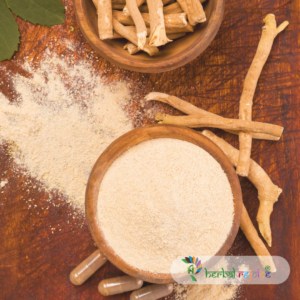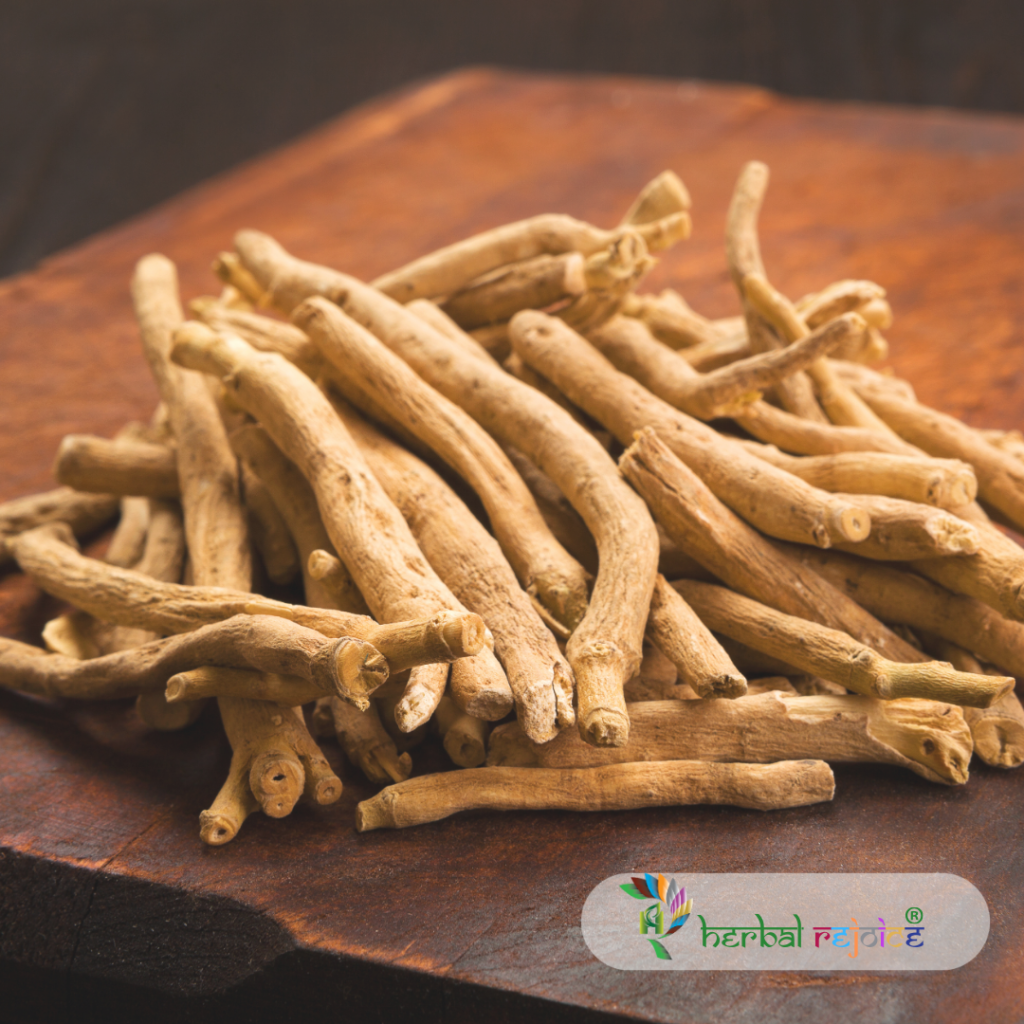Introduction
Ashwagandha (Withania somnifera), also known as Winter Cherry, is a medicinal herb that belongs to the Solanaceae family. It is native to the drier and subtropical parts of India and is widely cultivated for its therapeutic properties.
It has been used in Ayurvedic and Unani medicine for centuries due to its numerous health benefits like anti-inflammatory effect, sedative effect.
Names and Habitat
It is known by various names in different languages and traditional medicine systems. In English, it is commonly referred to as Winter Cherry (Physalis alkekengi is also known as Winter Cherry). In Ayurvedic medicine, it is called Ashwagandhaa, Hayagandhaa, Ashwakanda, Gandharvagandhaa, Turaga, Turagagandhaa, Turangagandhaa, Vaajigandhaa, Gokarnaa, Vrishaa, Varaahakarni, Varadaa, Balyaa, Vaajikari. In Unani medicine, it is known as Asgandh, and in Siddha medicine, it is called Amukkuramkizhangu.

Potential Health Benefits of Ashwagandha
The root of this plant is primarily used in traditional medicine. It has anti-inflammatory properties and is often used to treat swellings, tumors, scrofula, and rheumatism.
The root is also known for its sedative and hypnotic effects, making it useful in managing anxiety neurosis. In addition to the root, the leaves are also used for their anti-inflammatory and hepatoprotective properties. The fruits and seeds have diuretic effects.
Components Of Ashwagandha
Several active compounds have been identified including withanolides, alkaloids, and steroidal lactones. Withanine is a sedative and hypnotic compound found in the root, while withaferin A is a major component of biologically active steroids and exhibits antitumor, antiarthritic, and antibacterial properties.
The root extract also contains an ingredient with GABA mimetic activity, which contributes to its anxiolytic effects.
Therapeutic potential of Ashwagandha
Research has shown that it has promising therapeutic potential. Withaferin A has been found to be as effective as hydrocortisone in reducing inflammation. It also showed a significant protective effect against hepatotoxicity induced by CCl4 in rats.
The root extract has been found to have a negative impact on libido, sexual performance, sexual vigor, and penile dysfunction in male rats. However, more research is needed to fully understand the effects of this plant on sexual health.
Antistress activity
In addition to its anti-inflammatory and sedative properties, it has also been found to have antistress activity. A withanolide-free aqueous fraction extracted from the roots exhibited antistress effects in mice in a dose-dependent manner.
Dosage
The dosage of the root varies from 3 to 6 grams in powder form. It is important to consult a healthcare professional before starting any new herbal supplement or treatment.
Conclusion
In conclusion, Ashwagandha (Withania somnifera) is a versatile medicinal herb with a wide range of therapeutic properties. Its use in traditional medicine systems like Ayurveda and Unani has been well-documented for centuries.
Research suggests that it has anti-inflammatory, sedative, anxiolytic, hepatoprotective, and antistress effects. As a natural remedy, it offers a potential alternative to conventional medicines for various health conditions. However, more research is still needed to fully understand its mechanisms of action and optimal therapeutic uses.
Frequently Asked Questions
What is Ashwagandha?
It is a medicinal herb that is native to India and is known for its numerous health benefits.
What are the traditional names for Ashwagandha?
In Ayurvedic medicine, it is called Ashwagandhaa, Hayagandhaa, Ashwakanda, Gandharvagandhaa, Turaga, Turagagandhaa, Turangagandhaa, Vaajigandhaa, Gokarnaa, Vrishaa, Varaahakarni, Varadaa, Balyaa, and Vaajikari. In Unani medicine, it is known as Asgandh, and in Siddha medicine, it is called Amukkuramkizhangu.
What parts of Ashwagandha are used in traditional medicine?
The root is primarily used in traditional medicine.
What are some of the properties of Ashwagandha root?
The root has anti-inflammatory, sedative, and hypnotic effects.
What are the uses of Ashwagandha root?
The root is often used to treat swellings, tumors, scrofula, rheumatism, and anxiety neurosis.
Are there any active compounds found in this plant?
Yes, It contains several active compounds, including withanolides, alkaloids, and steroidal lactones.
What are the properties of withaferin A?
Withaferin A has antitumor, antiarthritic, and antibacterial properties.
How does Ashwagandha affect sexual health?
Research suggests that the root extract may have a negative impact on libido, sexual performance, sexual vigor, and penile dysfunction in male rats. However, more research is needed to fully understand its effects on sexual health.
Does Ashwagandha have anti-inflammatory effects?
Yes, withaferin A, a compound found in this plant, has been found to be as effective as hydrocortisone in reducing inflammation.
Does Ashwagandha have hepatoprotective effects?
Yes, withaferin A has shown significant protective effects against hepatotoxicity induced by CCl4 in rats.
Does Ashwagandha have anxiolytic effects?
Yes, the root extract of the plant contains an ingredient with GABA mimetic activity, which contributes to its anxiolytic effects.
What is the recommended dosage of Ashwagandha root?
The dosage of root varies from 3 to 6 grams in powder form, but it is important to consult a healthcare professional before starting any new herbal supplement or treatment.
How long has Ashwagandha been used in traditional medicine?
It has been used in Ayurvedic and Unani medicine for centuries.
Are there any side effects of Ashwagandha?
Consulting a healthcare professional is recommended before starting any new herbal supplement or treatment to ensure its safety and avoid potential side effects.
Can Ashwagandha be used as an alternative to conventional medicines?
It offers a potential alternative to conventional medicines for various health conditions, but more research is needed to fully understand its mechanisms of action and optimal therapeutic uses.
Does Ashwagandha have antistress effects?
Yes, a withanolide-free aqueous fraction extracted from the roots exhibited antistress effects in mice in a dose-dependent manner.
What are the therapeutic properties of Ashwagandha?
It has anti-inflammatory, sedative, anxiolytic, hepatoprotective, and antistress effects.
Is Ashwagandha safe to use?
Consulting a healthcare professional is recommended before starting any new herbal supplement or treatment to ensure its safety and avoid potential risks.
Can Ashwagandha be used for treating tumors?
The root is sometimes used in traditional medicine to treat tumors, but more research is needed to fully understand its efficacy in this regard.


